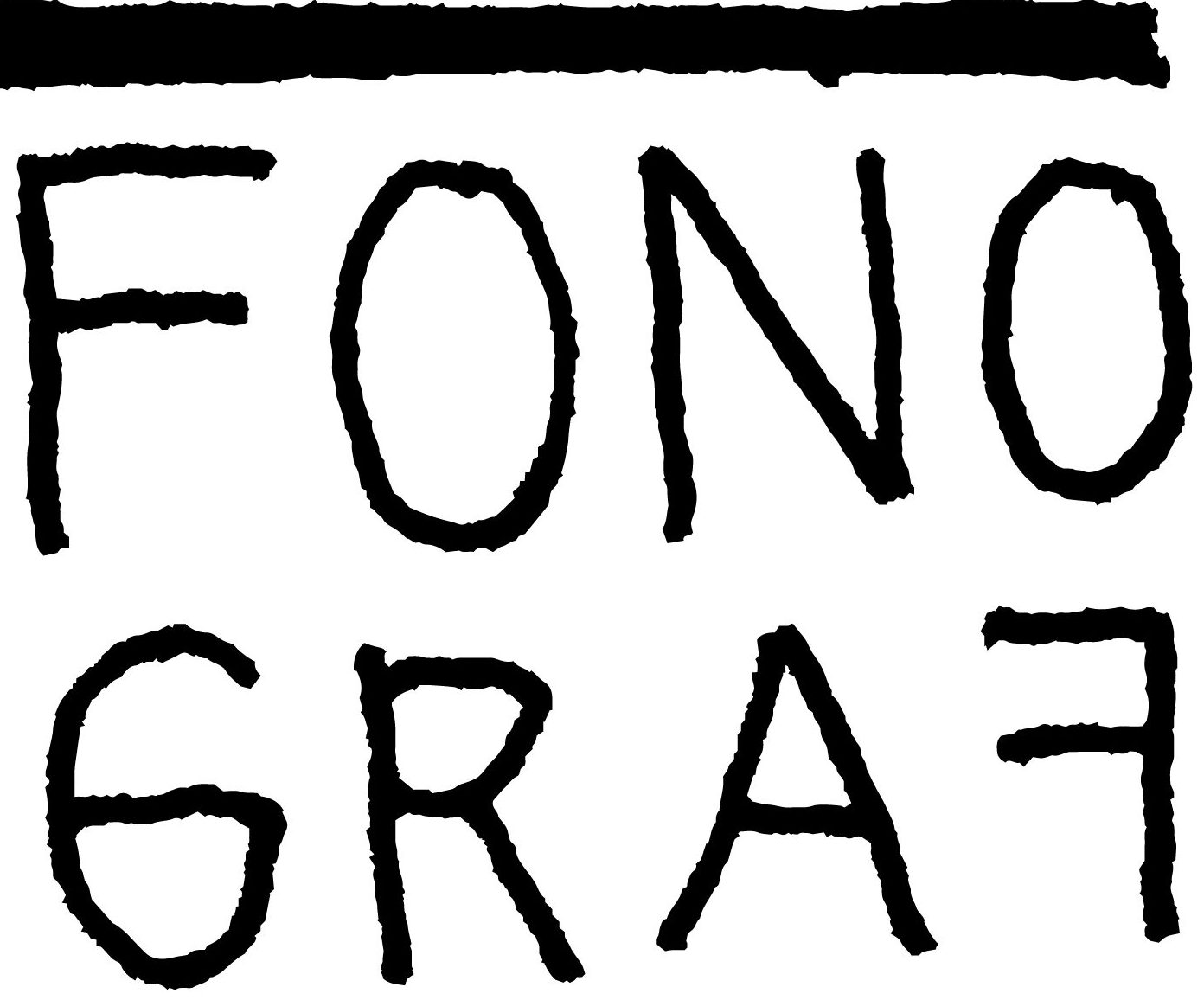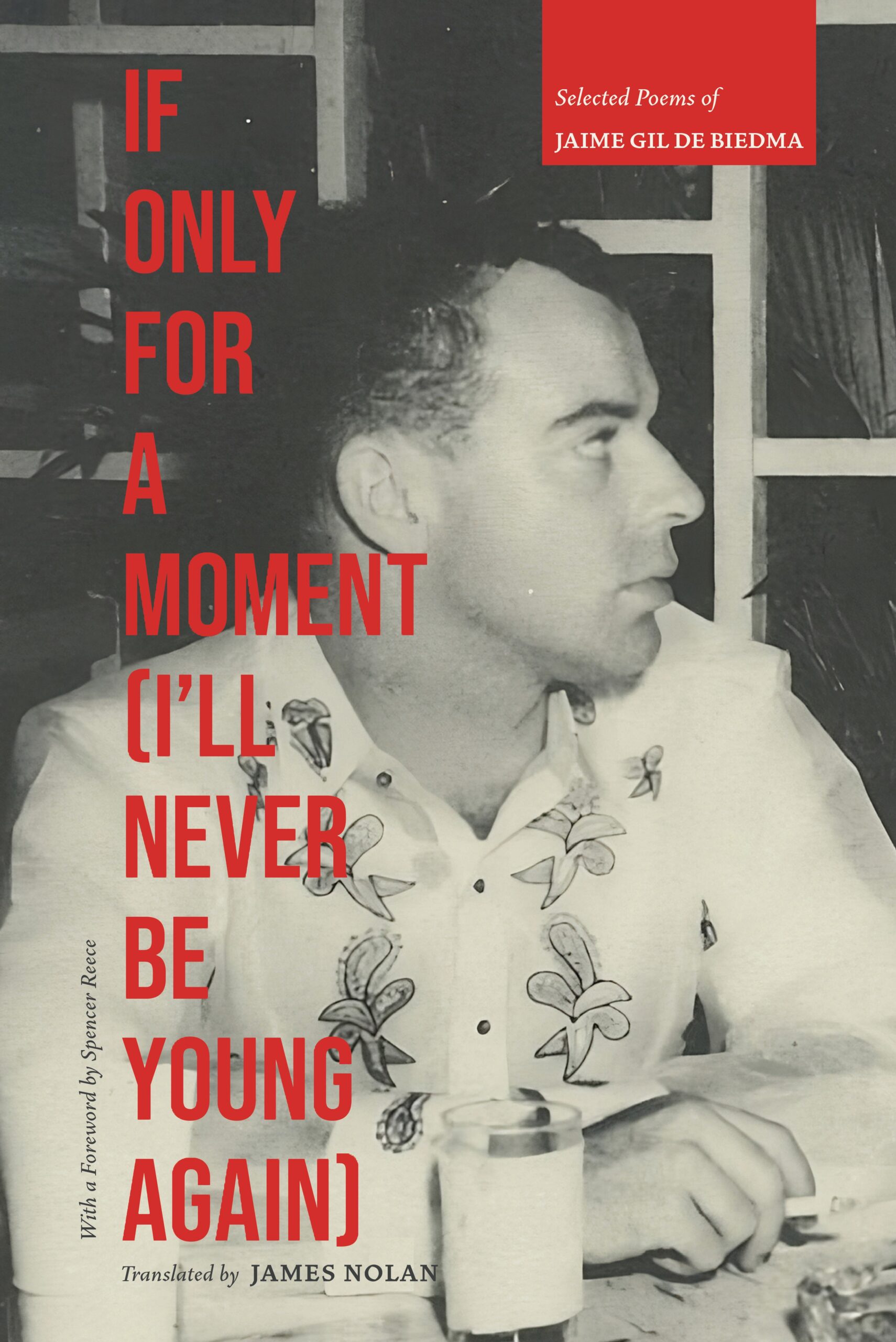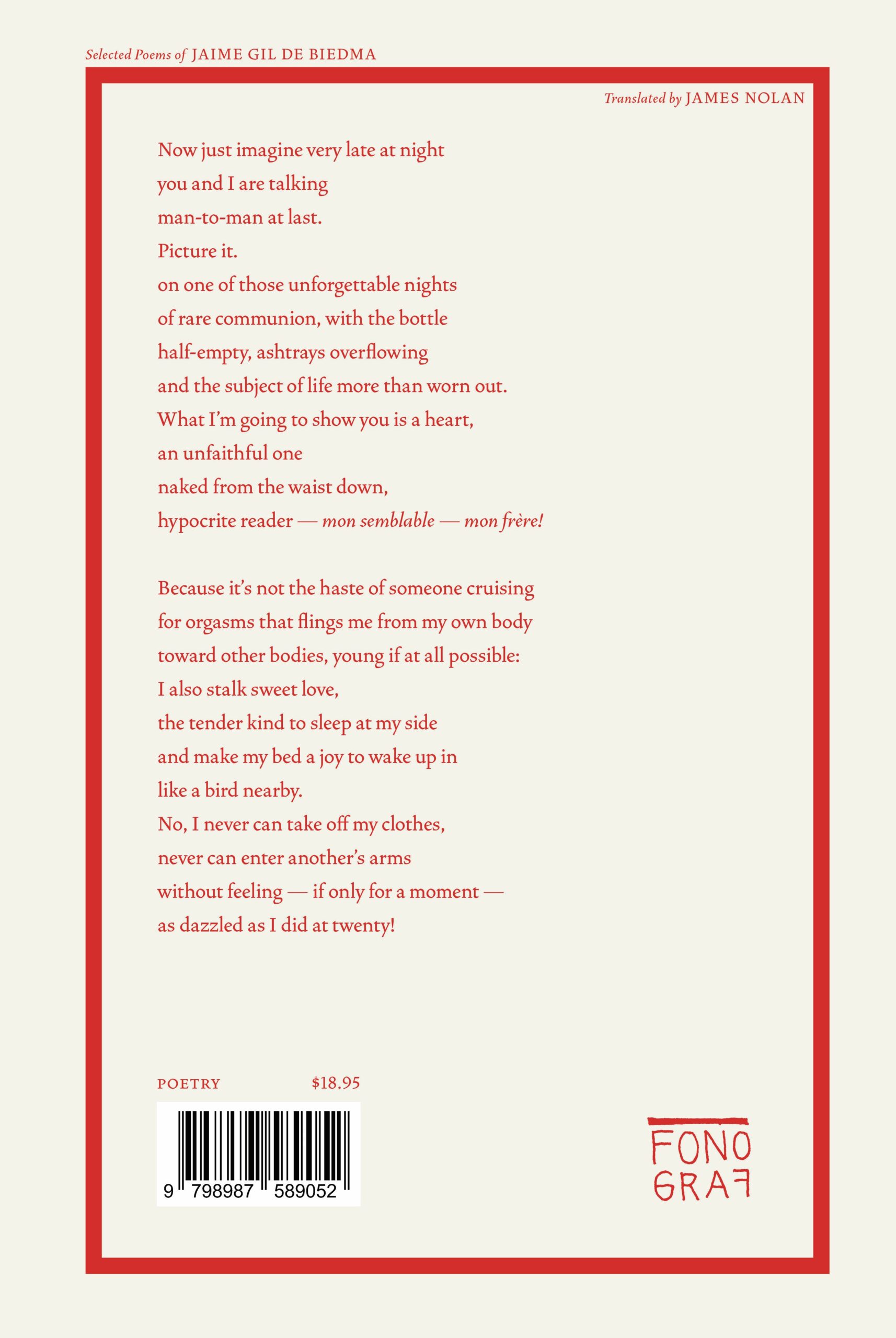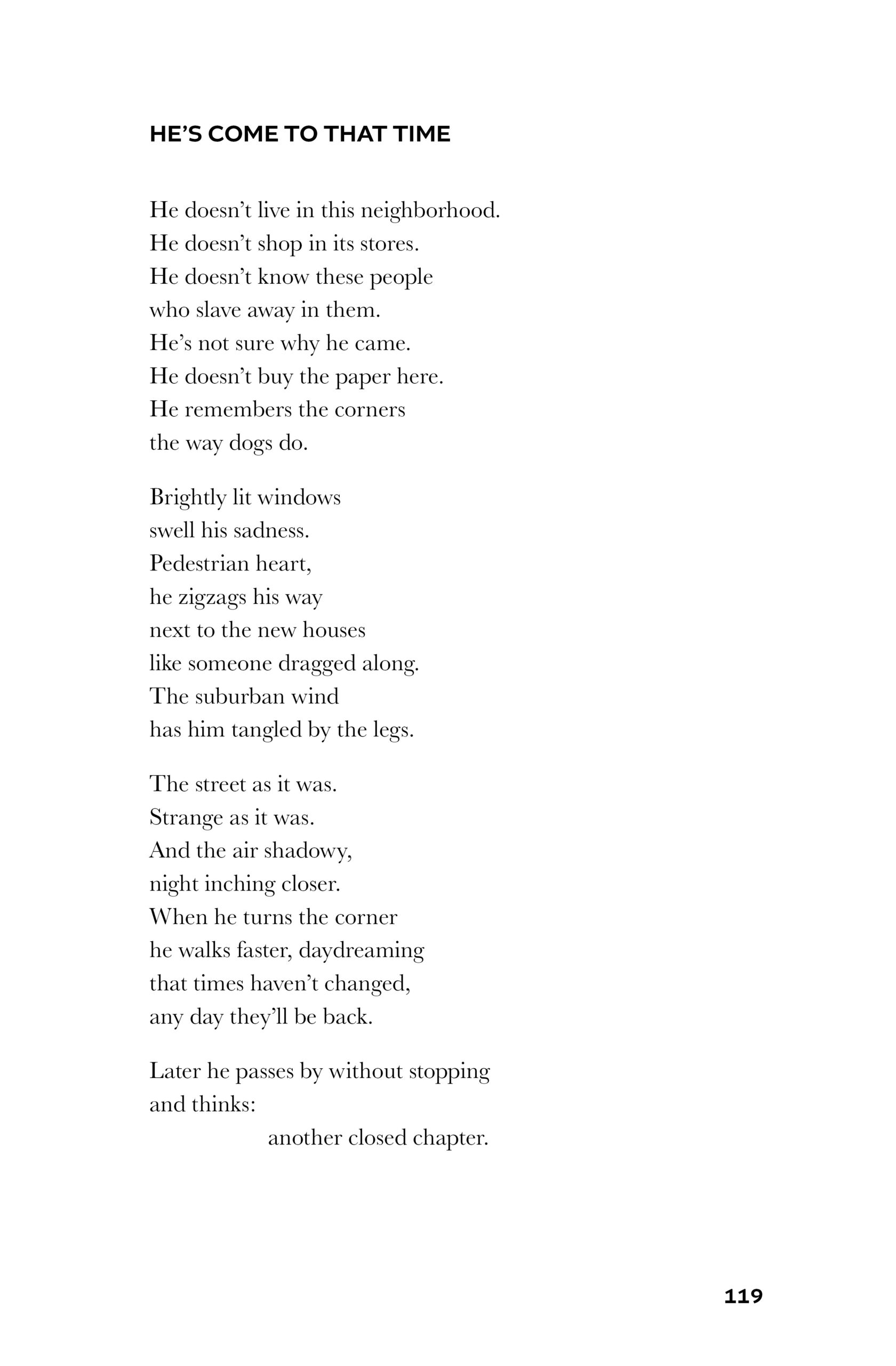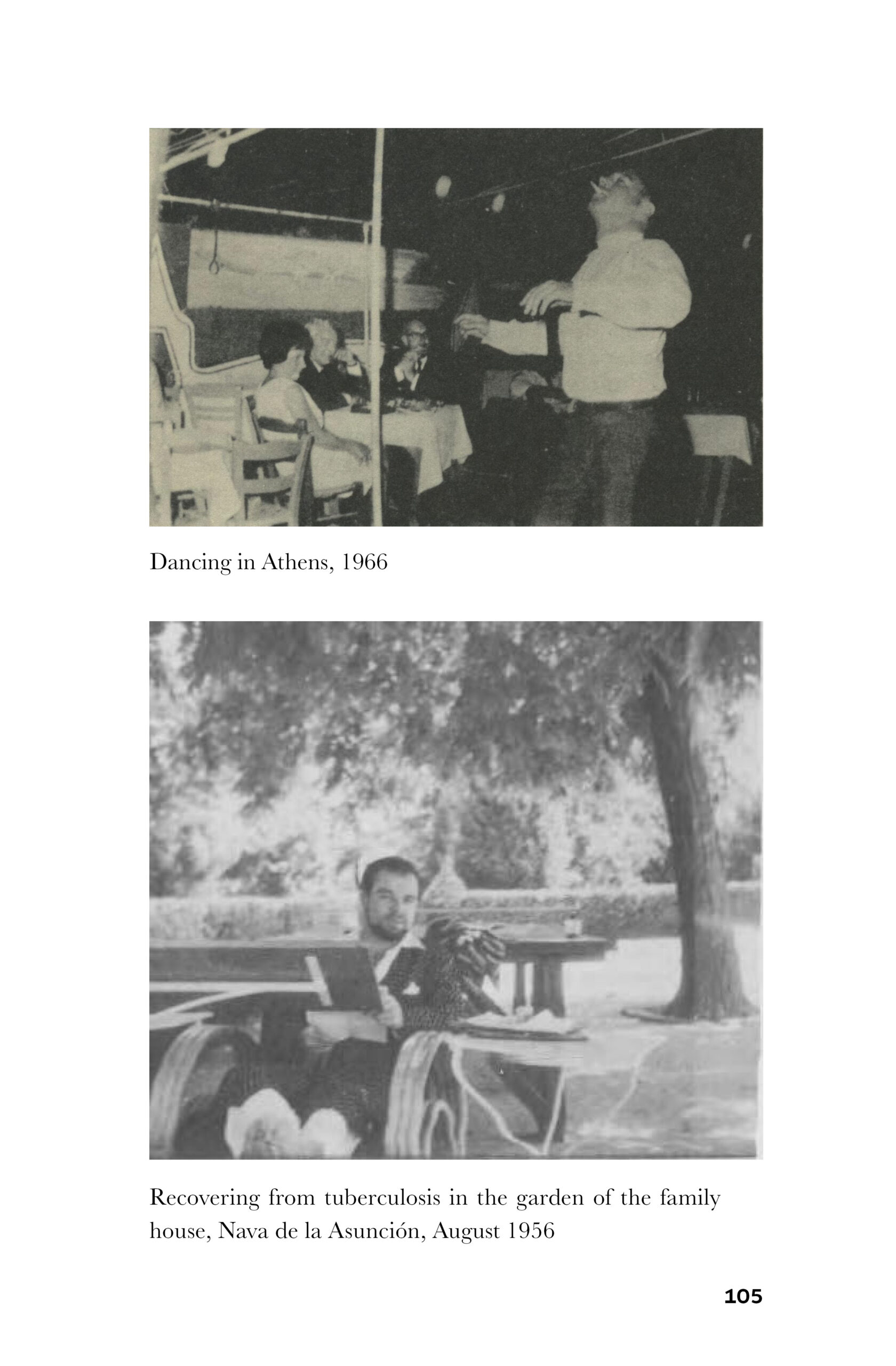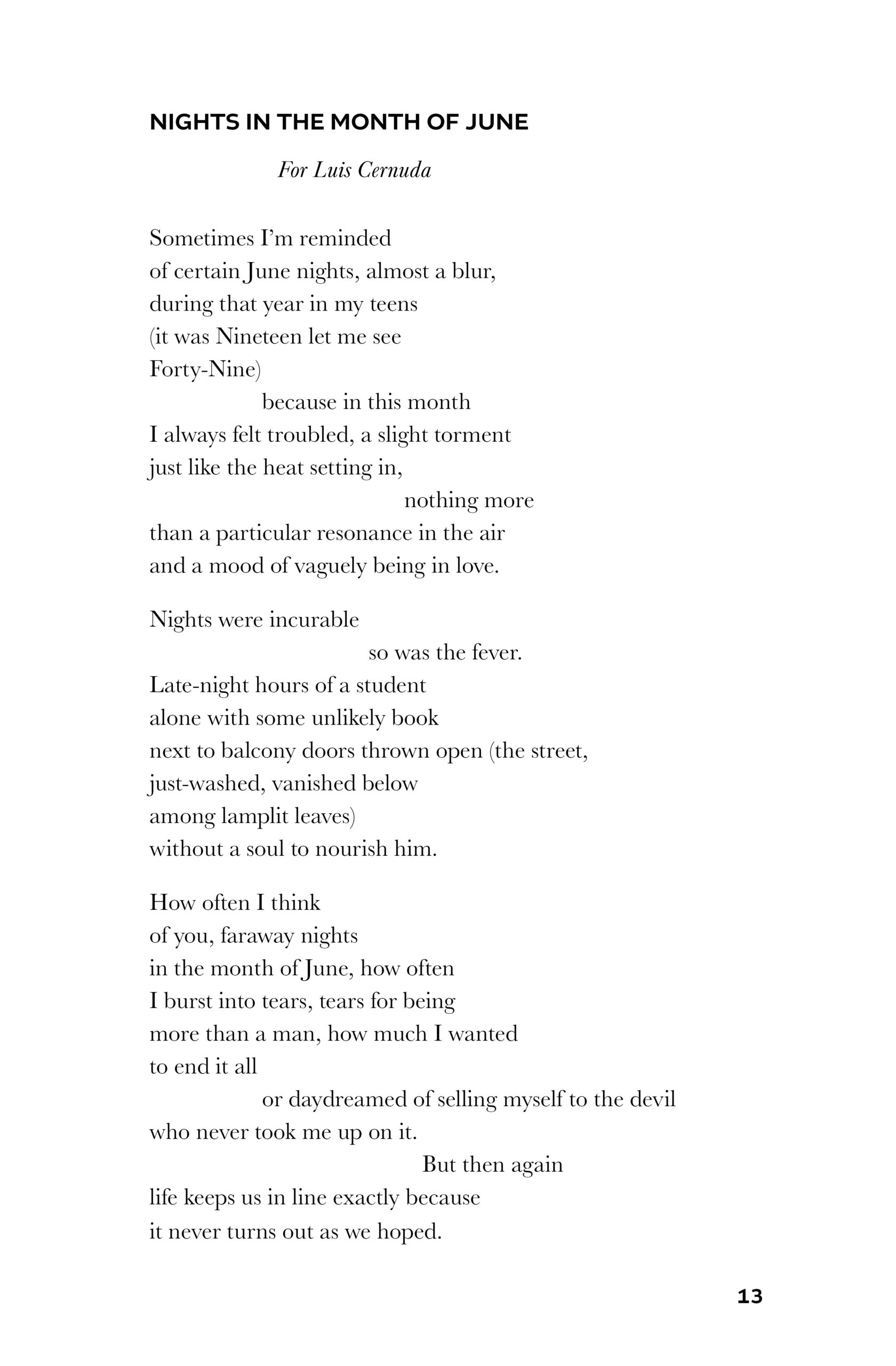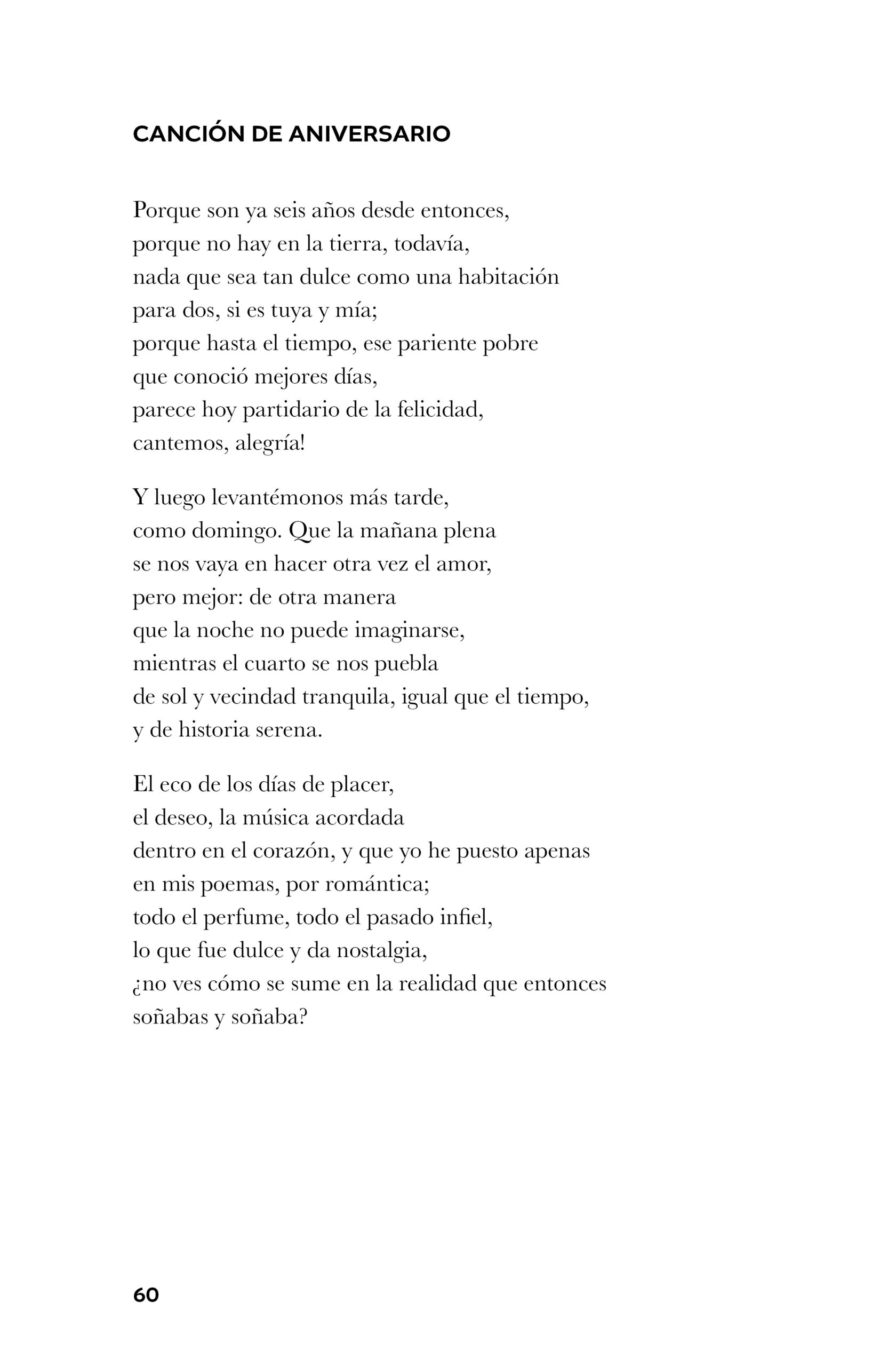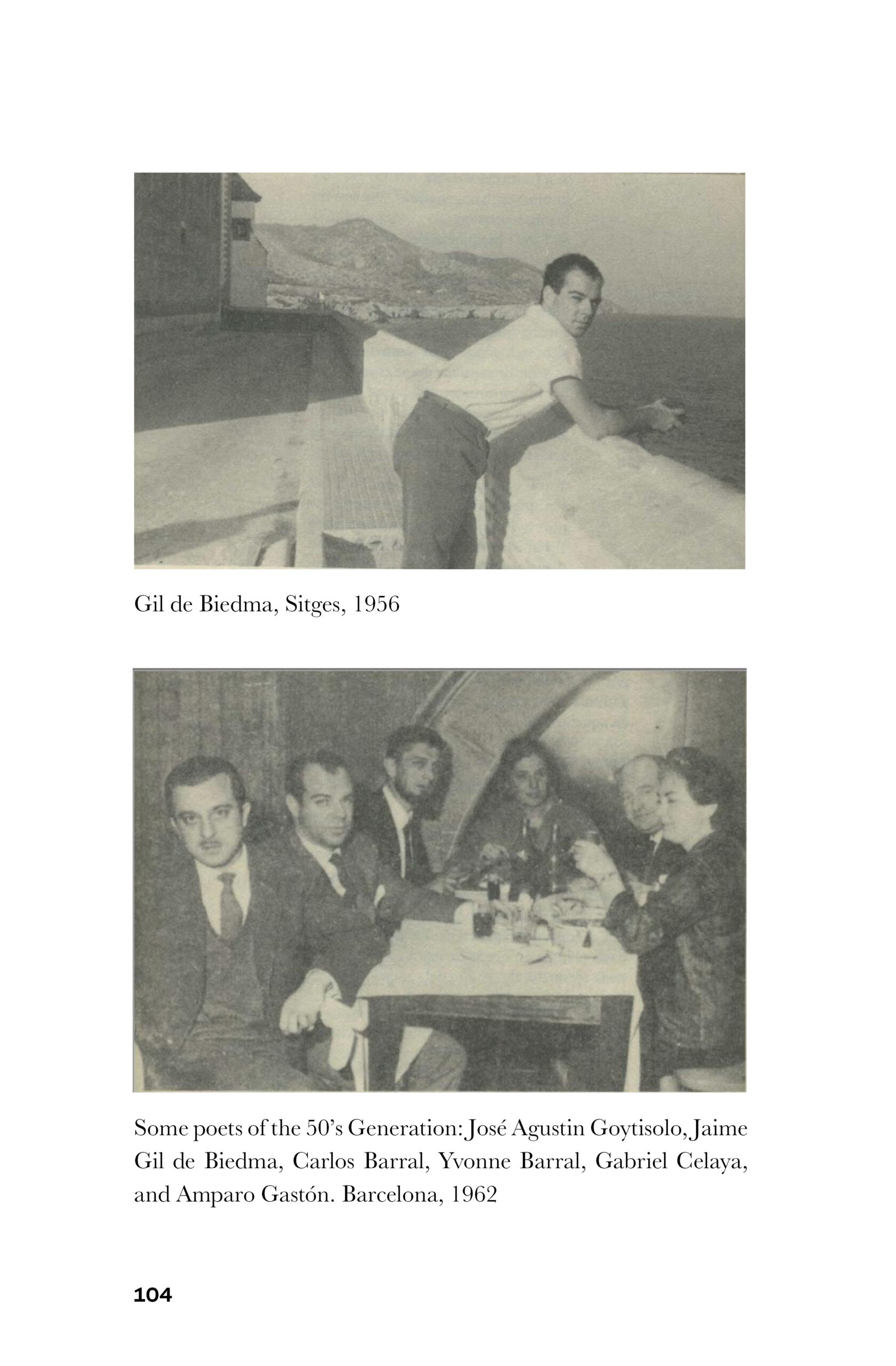FONO34 // Selected Poems of Jaime Gil de Biedma — If Only For a Moment (I’ll Never Be Young Again) (print; hardback book)
$18.95
Release Date: March 4, 2025
Description
Jaime Gil de Biedma is the most original and influential among the poets known as the ‘50’s Generation in Spain, and is considered the greatest Spanish poet to emerge in the second half of the 20th century. His life and literary career were bracketed almost entirely by the rise and fall of Generalissimo Francisco Franco, notorious for the suppression of literature. Born in 1929, Gil de Biedma was six years old when García Lorca was murdered in Granada at the outbreak of the Civil War, and his collected poems, Las personas del verbo, first appeared in 1975, the year Franco died. What is surprising is that Gil de Biedma was a leftist, homosexual poet from the Catalan capitol, Barcelona – all of Franco’s favorite things – who not only published books of autobiographical poetry in Spain but was known as a poet of social conscience as well as erotic lyricism. Like other Spanish poets of his time, he chose his words carefully. Gil de Biedma died of AIDS in 1990.
If Only For a Moment (I’ll Never Be Young Again) consists of an extensive bilingual selection of Gil de Biedma’s poetry, including all of his most well-known work. The book additionally consists of a Foreword by Spencer Reece, Jaime Gil de Biedma’s short essay “I wanted to be the poem,” and two different essays on Gil de Biedma and the art of translation by James Nolan, the volume’s translator.
About the translator:
James Nolan’s latest book is the memoir Between Dying and Not Dying, I Chose the Guitar: The Pandemic Years in New Orleans (2024). His Flight Risk won the 2018 Next-Generation Indie Book Award for Best Memoir. He has also published three prize-winning books of fiction, four poetry collections, a collection of essays in Spanish, and a translation of Neruda’s Stones of the Sky. The recipient of Fulbright and Javits fellowships, he has taught at universities in Barcelona, Madrid, San Francisco, and Beijing, as well as in his native New Orleans, where he now lives.
About the Author
The icon of a passionate literary cult, Jaime Gil de Biedma is widely recognized as Spain’s finest poet since Federico García Lorca.
Praise
In Jaime Gil de Biedma’s If Only For a Moment (I’ll Never Be Young Again), masterfully translated by James Nolan, I read a poetry that survives under pressure. These are poems that yearn for a lost Spain as our speaker longs for his youth. In If Only For a Moment (I’ll Never Be Young Again), poetry outlasts Franco and AIDS. So long as men and women can breathe museums will preserve artifacts and a poet like Gil de Biedma will add to the record of what life was like under oppression. Gil de Biedma fills in what was lost.
–Spencer Reece
In this brilliant bilingual edition, Jaime Gil de Biedma (and translator James Nolan) stage suits of poems committed to beauty and resistance, weaving together a politics filled with erotic charges, fierce candor, and a lilting descent into the past. Forfeiting nostalgia for a fierce look at the way personal and cultural histories collide, his collection remains true to de Biedma’s desire, as he says in his introduction, “be the poem” rather than the poet, this much overdo collection gives us a glimpse into the aftermath of both violence and love.
–Alexis Almeida
Here is a restless, questioning, questing spirit, whose poems stand like swinging doors through which the poet ceaselessly crosses the borders between the life we live and the life we imagine. The Spain de Biedma navigates is a zone of deep transformation, and though it’s scary — even mournful — his clarity of vision is exhilarating. We pass through “the long tunnel of this kiss” aroused into sentience, exactly as we close our eyes and tongue oblivion. “I shut/my eyes but the spirit’s eyes/ stay open till it hurts.” There’s something profoundly modern about the sense of loss, something instinctively post-modern about the narrator’s awareness of his task, and some abiding hunger for history that defies time as “a passionate/ call to the future, in the worst of times.”
–Aaron Shurin
Modernism often envisions the poet as a figure like Antigone—caught up in a spectacular confrontation between liberation and tyranny. But what happens when revolution isn’t an option? When open defiance must give way to hidden resistance? When survival depends on cultivating quiet, unseen connections—like mycelial networks threading beneath the surface, waiting for the right moment to emerge?
Jaime Gil de Biedma, a gay Catalan poet writing under Franco’s regime, wrestled with these very dilemmas. His strategies—both personal and poetic—for survival and for truly living included masks and adaptations, recycling and irony, self-scrutiny and eroticism. He drew on “household words worn warm with use” to make works that not only anticipated Spain’s cultural liberation after Franco’s death in 1975 but also resonate powerfully today. Gil de Biedma’s poetry endures as proof of the effectiveness of these strategies. As Spencer Reece writes in his foreword, “Poetry remains indestructible. Poetry outlasts Franco and AIDS.”
Gil de Biedma reminds us that even under repressive regimes, people can carve out sanctuaries where life and freedom persist, waiting for their chance to break through: “It all boils down to being alive for a moment… / when we break away into / the best of all impossible worlds.” James Nolan’s translations of Gil de Biedma offer a timeless source of encouragement for all who endure repression and tyranny.
–Robert Fernandez
